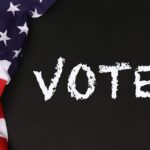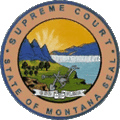House Bill 551, promoted by the Montana Shooting Sports Association (MSSA) to amend the Montana Constitution, passed its second reading with a 65-35 vote. Even with two dissenting votes from freshman Rep. Fitzpatrick (R-Anaconda) and Rep. Rusk (R-Corvallis), MSSA has made considerable progress towards attaining the goal of a clear right to Keep and Bear Arms in Montana.
Section 12 of the Montana Constitution includes the clause “but nothing herein contained shall be held to permit the carrying of concealed weapons.” This bill eliminates that clause. We effectively have this now with permitless carry from the Montana Firearms Freedom Act, but eliminating this clause would enshrine that right more effectively.
Montana’s Section 12, originally stated in 1884, is derived from the Missouri Constitution of 1875. Originally intended as a way to keep newly-freed Black people unarmed and subject to discrimination, this law has no current value or significance.
But to truly understand the racist roots of this language, you must understand the historical context from more than just the view of Montana. From the earliest days of the United States, laws were put in place to prevent certain groups from owning guns. For example, in the 17th century, Virginia passed a law that prohibited “Negroes, mulattoes, and Indians” from owning firearms. Similarly, in the years leading up to the Civil War, many states passed laws that prevented enslaved people from owning guns or even learning how to use them.
Adam Winkler, writing in the Harvard Law Review, explained it well:
For a significant portion of American history, gun laws bore the ugly taint of racism.The founding generation that wrote the Second Amendment had racist gun laws, including prohibitions on the possession or carrying of firearms by Black people, whether free or enslaved. A Florida law in 1825 authorized white people to “enter into all Negro houses” and “lawfully seize and take away all such arms, weapons, and ammunition.” In Dred Scott v. Sandford, Chief Justice Roger Taney argued that one reason Black people could not be citizens under the Constitution was that it “would give to persons of the negro race” the right “to keep and carry arms wherever they went.” After the Civil War, the Black Codes enacted in the South made it a crime for a Black person to have a gun. Even facially neutral laws were used in a racially discriminatory fashion; Martin Luther King Jr. was denied a concealed carry permit even after his house was firebombed. For much of American history, gun rights did not extend to Black people and gun control was often enacted to limit access to guns by people of color.
Gary Marbut explained the racist roots of the Missouri language imported into the Montana Constitution:
A very high percentage of Montana immigrants in the 1860s through 1880s came from Missouri, specifically because of the availability of water transport from Missouri to Montana. These transplanted Missourians imported not only many of the laws copied by Montana, but also the pervasive racism and discrimination rampant so shortly after the U.S. Civil War.
After the Civil War, gun control laws continued to be used to target and discriminate against Black Americans. One of the most infamous examples is the Black Codes, a set of laws passed in Southern states after the Civil War that were designed to restrict the rights of Black people and maintain white supremacy. These laws included provisions that made it illegal for Black people to own guns or ammunition, effectively disarming them and leaving them vulnerable to violence and intimidation from white vigilantes and law enforcement.
In the early 20th century, as waves of immigrants arrived in the U.S., many politicians and lawmakers began to use gun control as a way to discriminate against these new groups. For example, in 1911, New York City passed a law that required anyone who wanted to own a handgun to obtain a license. While this may seem like a reasonable requirement, in practice, the law was applied selectively to deny licenses to Italian and Jewish immigrants, who were seen as violent and dangerous.
Similarly, in the 1920s and 1930s, laws were passed that made it more difficult for Mexican immigrants to own guns. These laws were based on racist stereotypes that portrayed Mexicans as violent and dangerous and were often used to justify violence and discrimination against Mexican Americans.
Many on the left argue that conservatives will stop supporting the Second Amendment as soon as minorities start exercising their Right to Keep and Bear Arms. Nothing could be further from the truth. The National Shooting Sports Federation found that Blacks had the highest increase in gun purchases during the pandemic:
The highest overall firearm sales increase comes from Black men and women who show a 58.2 percent increase in purchases during the first six months of 2020 versus the same period last year.
The Guardian pointed out that Blacks are forming their own support groups to become proficient in firearms usage:
Tired of the NRA’s failure to reach out to Black communities and vilification of slain Black gun owners, Black gun owners formed their own affinity groups like BGOA and the National African American Gun Association (Naaga) to encourage other Black Americans to embrace their right to own firearms and educate them on gun safety. Their membership only grew amid killings like the one of Philando Castile in Minnesota and Alton Sterling in Louisiana.
This trend has been going on for a couple of years now, and as we can see from our extremely active legislative season this year, there has been no retreat from the desire to increase our freedoms. Frankly, if you’re against cleaning up the Montana Constitution and don’t support HB 551, you’re the racist.





Leave a Reply